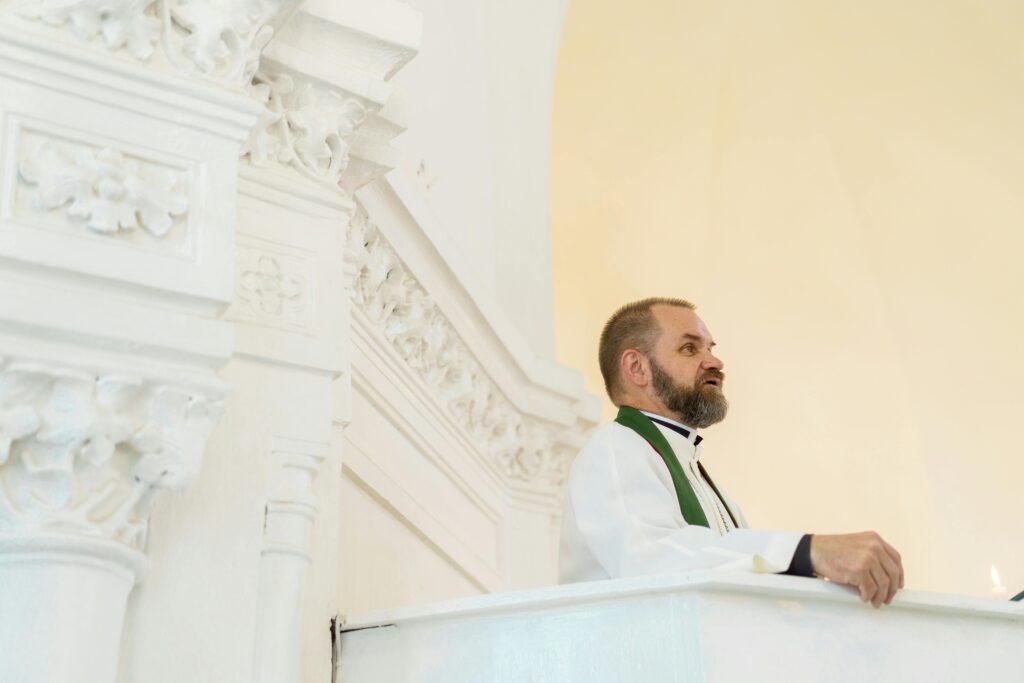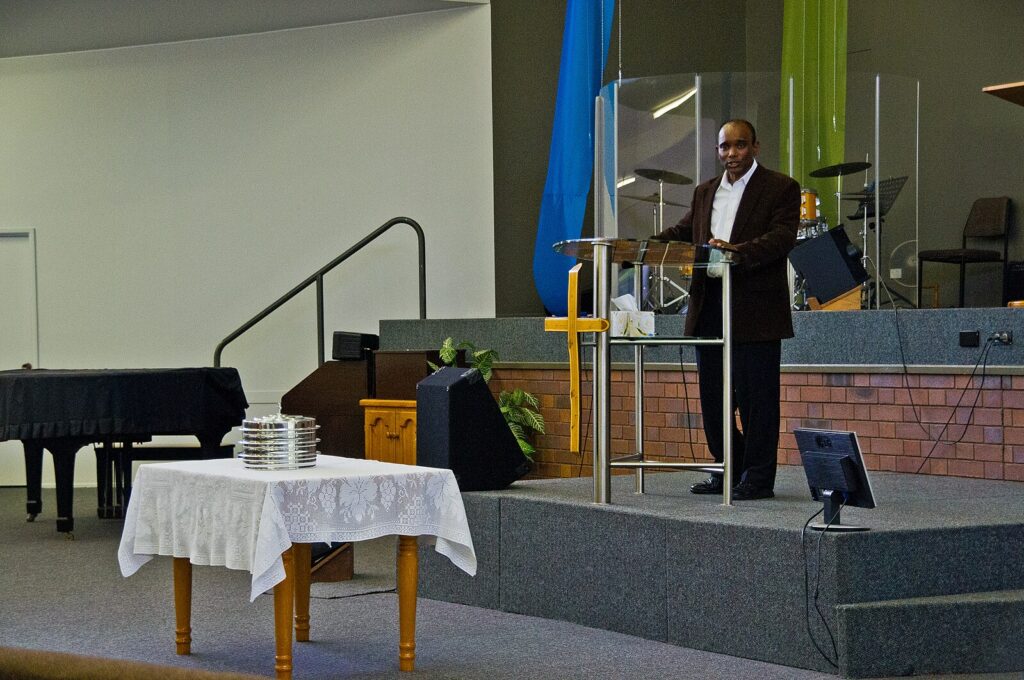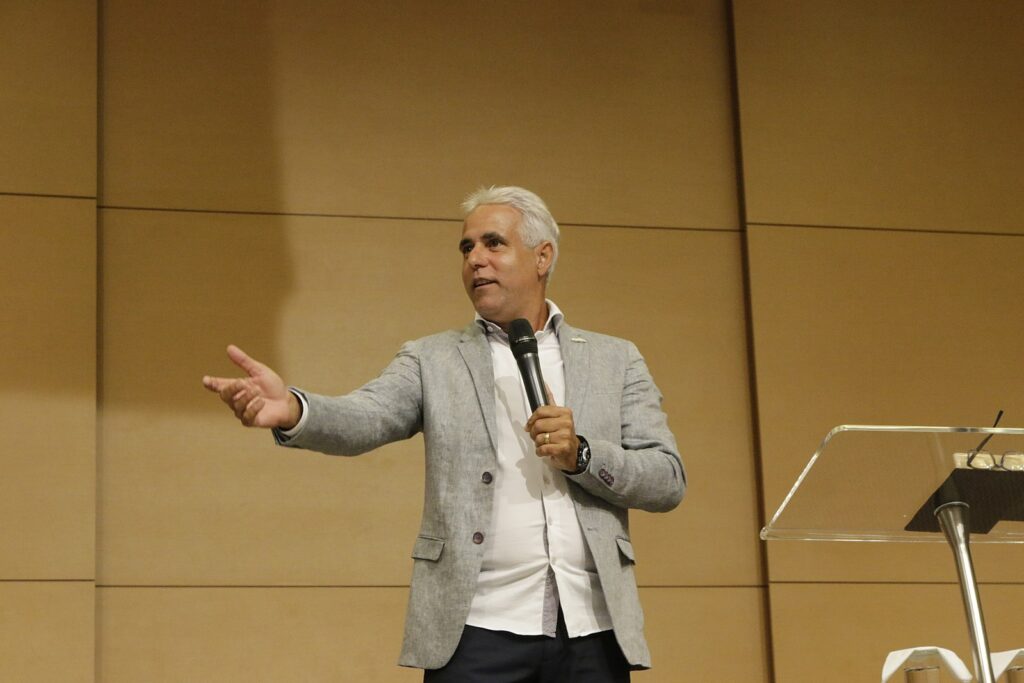You know that moment when you’re sipping your oat-milk latte, doom-scrolling your bank account, and wondering if there’s some cosmic hack you missed? Well, spoiler: there is. And it’s not in your banking app—it’s way older (and cooler) than any fintech startup. From “God owns everything, so chill on the freak-out” to “give like you’re the plot twist in someone else’s story,” these 15 money moves straight from the Good Book have survived millennia of market crashes and tulip mania. Slide through and find out why your piggy bank (and your soul) could use a little Old Testament—and New—wisdom.
1. Acknowledge That God Owns It All

God doesn’t play pretend when it comes to ownership—you might think your 401(k) is yours, but Scripture—and smart folks—remind us otherwise. According to Forbes, recognizing God as the ultimate owner reframes money from an idol into just another tool. When you truly get that everything “belongs” to a higher power, budgeting feels less like jail and more like stewardship. Suddenly, tracking expenses isn’t some soul-crushing chore—it’s your way of honoring the true CEO of the universe.
This mindset shift is essential because it frees you from the constant grind of “mine, mine, mine.” It softens the grip of materialism by helping you see money as an assignment rather than a possession. And honestly, when you realize you’re just a manager of divine resources, you might find it easier to let go of that $200 impulse buy on a whim. Plus, admitting that God owns it all sets the stage for generosity—because it’s less “giving up my stuff” and more “sharing what’s already His.”
2. Beware the Trap of Debt

Debt can feel like a one-way ticket to Stressville, and the Bible doesn’t sugarcoat that reality. As Bloomberg reports, “the borrower is slave to the lender” isn’t just ancient poetry—it’s financial science. When you owe more than you own, interest isn’t just a number; it’s a chain that tightens every month.
Living debt-free or aiming that way means you’re not burning half your paycheck just to break even. It gives you freedom to invest, save, and even walk away from a job that’s killing your soul. And when you’re not hunkering down each month to pay off credit cards, you actually get to sleep at night without spreadsheets dancing in your head. Because here’s the tea: money worries can wreck your health, relationships, and creativity. So treat debt like a toxic ex—block it, ghost it, and don’t let it slide into your DMs.
3. Save Little by Little for Big Impact

“Don’t hoard, but do plan” might sound like a paradox, but Proverbs 21:20 nails it: “Precious treasure and oil are in a wise person’s dwelling.” Per the Wall Street Journal, building wealth gradually is not just wisdom, it’s math. When you tuck away a bit each payday—think automatic transfers—you’re harnessing compound interest and quelling the “live-for-today” siren song.
This principle isn’t about living like a pauper; it’s about balance. You get to enjoy your latte and still funnel cash into a nest egg that could buy you freedom down the road. Saving steadily also cushions you against surprise expenses—car repairs or medical bills—so you don’t have to tap that credit card again. It’s like building a financial force field around yourself. Over time, you’ll look back and realize those small, “harmless” skips of avocado toast were just the down payment on your future peace of mind.
4. Give Generously as Your First Response

Tithing and generosity are not just charity—they’re strategic investments with eternal ROI. According to Bible League International, giving your first fruits rather than what’s left over flips the script on our scarcity mindset. When you budget your giving first, everything else falls into place by design, not desperation.
Generosity trains your heart to see neighbors—not numbers—and practically broadcasts that you trust there’s enough to go around. Plus, studies show giving boosts happiness and lowers stress, because kindness is literally wired into our brains. When you lead with generosity, you’re not just helping others; you’re rewiring your own neural pathways for gratitude and contentment. And let’s be real, who doesn’t need more of that?
5. Diversify Your Investments—Scripture Style

“Don’t put all your eggs in one basket” isn’t just Yiddish wisdom—it’s biblical, too. Ecclesiastes 11:2 advises spreading out your ventures because the future is a mysterious fog. In insights from The Gospel Coalition, you’re encouraged to invest in multiple streams—think savings, stocks, and your side hustle.
This strategy guards you against market crashes and personal setbacks—if one stream dries up, you’ve got backups to keep life flowing. Diversification also trains you to evaluate risks and rewards holistically, making you a smarter steward of resources. And as an added bonus, juggling different investments keeps your financial game interesting—you get the thrill of entrepreneurship, the patience of long-term investing, and the safety net of cash reserves all at once.
6. Plan for Tomorrow, Live in the Moment

Luke 14:28 urges you to count the cost before launching any big project—and that’s not just church-camp planning. Budgeting for future goals means you can actually enjoy today without guilt. When you know how much to set aside for your travel fund, you’ll sip that margarita poolside without the “should I be saving?” panic attack.
But here’s the twist: planning for the future doesn’t have to feel like chained-to-your-desk budgeting. Think of it as setting up a “fun fund” alongside your “future fund.” You carve out a little each month for that dream trip or that spontaneous concert ticket, while simultaneously padding your emergency stash. That way, you’re not trading joie de vivre for security—you’re doing both. Plus, seeing your future goals in black-and-white (or neon marker on a vision board) makes them feel more real, less like abstract math. You end up with the peace of knowing you’re covered if life throws you a curveball—and still have room to live your best life now. And honestly, nothing beats the confidence of kicking back with a cocktail, knowing you’re all set for whatever comes next.
7. Work Diligently, But Don’t Worship Your Career

Proverbs 14:23 reminds us that “all hard work brings a profit,” but hustle-culture burnout is real. Your job should fund your life, not define it. When you view work as a gift, you’re more likely to show up energized and less likely to become a burnout statistic.
In practical terms, that means setting boundaries: emails after dinner? No thank you. Weekend overtime? Hard pass. When you protect your personal time, you actually become more productive during work hours—science calls this “rested creativity,” and it’s a real thing. You’ll find hobbies that refill your inspiration tank, from painting to pickling veggies, which reminds your brain there’s more to you than your LinkedIn endorsements. And when your worth isn’t tethered to a title or paycheck, you’re free to pursue projects that light you up, even if they pay less. That perspective shift can lead to unexpected blessings—a side hustle you adore, relationships you nurture, or just the joy of lazy Sunday mornings. Ultimately, diligent work plus a balanced life equals sustainable success.
8. Avoid the Comparison Trap

Comparison is the fast track to discontent—1 Timothy 6:6 says godliness with contentment is great gain. Social media makes it easy to peek at everyone’s highlight reel, but remember: your journey is yours alone.
So when you catch yourself double-tapping someone’s vacation pic while eyeing your bank balance, pause and pivot. Gratitude journals aren’t just for Instagram aesthetics—they rewire your mind to notice the abundance you already have. Celebrate your friend’s promotion without feeling less-than; their win doesn’t erase yours. And guard your mental space—unfollow accounts that spark envy faster than a click. Contentment isn’t about settling; it’s about recognizing that the grass is greener where you water it. By focusing on your unique gifts and progress, you build financial and emotional resilience. Before you know it, you’ll be scrolling less and living more, cheering on your own milestones instead of chasing someone else’s.
9. Seek Wise Counsel Before Big Decisions

Proverbs 15:22 warns that “plans fail for lack of counsel,” so don’t go solo on your biggest money moves. Whether it’s a friend who’s a budgeting wizard or a certified financial planner, outside perspectives can catch what you miss.
Think of wise counsel like financial spell-check—someone else can spot the typos in your strategy before they become costly. Maybe your buddy spots an overlooked fee in your investment plan, or your planner suggests a tax hack you didn’t know existed. Don’t be shy about asking tough questions: “Does this make sense?” or “What am I missing?” Because honest feedback can turn a shaky plan into a solid roadmap. And if there’s a cost, weigh it against the value of peace of mind and better outcomes. Having a mentor or advisor also holds you accountable—no more ghosting your own budget. In the end, collaboration amplifies wisdom, and two heads really are better than one when it comes to stewarding your resources.
10. Embrace Contentment, Not Consumerism

1 Timothy 6:10 exposes “the love of money” as a root problem of all kinds of evil. The antidote? Cultivate contentment. When your joy isn’t tethered to the next purchase, you free yourself to live richly in gratitude.
Contentment isn’t about going without—it’s about going within. Start by defining what “enough” looks like for you. Do you really need that upgrade to the latest model, or will your current gadget do just fine? When you pause before buying, you give yourself space to ask, “Will this add real value, or is it just shiny noise?” You’ll notice less impulse spending and more intentional living. Plus, the fewer wants you chase, the more you can pour into causes and experiences that actually matter. Contentment also breeds generosity—when you’re satisfied, you’re more likely to share. And that, ironically, leads to more joy than any retail therapy ever could.
11. Honor Your Commitments—Financial and Otherwise

Ecclesiastes 5:5 insists that it’s better not to vow than to vow and not pay up. Whether it’s a loan to a friend or a subscription service, following through builds trust—and keeps your karma (and credit score) intact.
Showing up on your promises—even the small ones—signals integrity to both others and yourself. If you say you’ll pay your buddy back by Friday, do it; if you sign up for that monthly class, actually attend. These micro-commitments train your discipline muscle, making bigger financial goals feel more attainable. And when people know you’re reliable, they’re more likely to support your ventures—networking, referrals, or leniency when life gets messy. Conversely, breaking promises erodes confidence and can cost you future opportunities. So treat your word like currency: spend it wisely, and protect its value. Over time, your reputation becomes one of your most valuable assets.
12. Pray About Your Finances—Yes, Really

Philippians 4:6 tells us to present our requests to God with thanksgiving. Stressing over spreadsheets is so 21st century—try laying your financial fears at the feet of your Creator and see how differently you sleep at night.
Prayer isn’t a magic ATM slip, but it does reorient your heart and mind. When you pause to commune with God, you get clarity on motivations—are you chasing wealth to impress others or to steward well? Plus, it cultivates gratitude for what you already have, which fuels contentment. Prayer can also inspire action: a sudden nudge to apply for a scholarship, negotiate a raise, or cut a wasteful expense. And when you feel heard and cared for in your prayers, anxiety loses its grip. It’s not literally making interest rates drop, but it does shift your perspective from scarcity to grace. That shift makes a world of difference in how you handle your finances day to day.
13. Remember That Wealth Is a Tool, Not a Trophy

Jesus in Matthew 6:19–21 flips the trophy narrative: store up “treasures in heaven” instead of chasing earthly ones. When you view money as a means to bless others, every dollar gets a purpose beyond your pocket.
This means reimagining your budget categories: not just “rent” and “bills,” but also “impact fund” and “community care.” You might sponsor a child’s education, support local nonprofits, or invest in ethical startups. That sense of mission turns mundane transactions into expressions of your values. And when your bank statement reflects purpose, you won’t feel hollow when you reach a numerical milestone. Wealth then becomes a story you tell—a legacy of care, not just accumulation. Plus, using your resources for good often circles back in unexpected blessings—relationships, opportunities, and a sense of fulfillment money alone can’t buy.
14. Practice Generosity in Small Ways, Every Day

Luke 6:38 says giving perpetuates receiving. It doesn’t always have to be a big check—buy someone a coffee, send an encouraging note, or share a ride. Small acts of generosity compound into a legacy of kindness.
When generosity is woven into your daily rhythm, it becomes as natural as morning coffee. Imagine tucking a few extra dollars into a tip, rounding up your grocery total to donate, or sliding a surprise gift card to a coworker. These micro-gifts create ripples you’ll never fully see—but your kindness matters. And you’ll notice your own heart softening, too—generosity reduces stress and deepens connections. Even on tight budgets, there’s always a way to give: compliments, time, or a listening ear. Over time, these small habits build a generous identity—you become someone who sees need and meets it, without fanfare. And that daily practice prepares you for bigger giving moments down the road.
15. Trust God’s Provision Instead of Your Portfolio

Matthew 6:25–34 reminds us not to obsess over tomorrow’s ROI. Worrying won’t add a single cent (or inch), but trusting God frees you to focus on what you can control—wise choices today and faith for tomorrow.
Trust doesn’t mean you ignore financial realities; it means you balance planning with peace. You research insurance, automate your savings, and diversify—and then you rest in the assurance that you’re not ultimately in control. When a market dip sends others into a panic, you maintain your calm because your hope isn’t tied to a ticker symbol. That confidence spills into every aspect of life—relationships, work, and wellbeing. And when hard times come, you remember past seasons where needs were met in unexpected ways. Trust, in this context, becomes your strongest asset—an unshakeable foundation that carries you through bear markets, job losses, and life’s curveballs. In the end, faith and finances walk hand in hand, each making the other stronger.
This article is for informational purposes only and should not be construed as financial advice. Consult a financial professional before making investment or other financial decisions. The author and publisher make no warranties of any kind.








